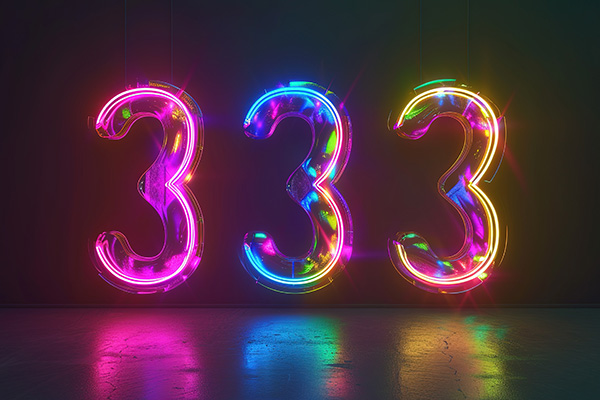divine self
What It Means To Align With Your Higher Self
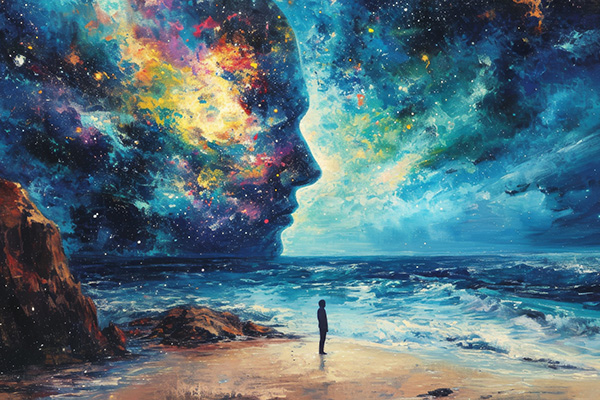 The term “higher self” is a term often used in spirituality, metaphysics, and psychic work, but it can be very confusing. What exactly is it? Is it our subconscious, our conscience, our alter ego, our soul, our spirit?
The term “higher self” is a term often used in spirituality, metaphysics, and psychic work, but it can be very confusing. What exactly is it? Is it our subconscious, our conscience, our alter ego, our soul, our spirit?
While these aspects are all related in some way to the higher self, it’s best understood as the most enlightened and transcendent part of our being.
Our soul or spirit is the conscious, evolving part of us in this lifetime, while the higher self is our soul’s highest potential. It is our divine blueprint and our eternal spiritual essence that exists beyond our physical self in the non-physical. It’s the timeless, eternal part of us that embodies the divine essence of who we are.
While the incarnated aspect of soul is the conscious experiencer throughout our lifetime, the higher self is the permanent aspect of the soul that exists in the higher realms.
The higher self is not a separate personality or individual being, but a deeply integrated, higher foundation of our soul. It is like a spiritual archive of all the wisdom, experiences and lessons accumulated from our past lives, as well as our soul contracts and higher purpose for this lifetime, serving as a blueprint for our soul’s evolution and life journey. It reflects the highest aspects of our being.
When we connect with our higher self, we align with this elevated aspect of who we truly are and what we intend to accomplish in this life and the next. This connection gives us clarity and insight into our soul’s path. It allows us to see life from a higher perspective and guides us to make choices that promote personal and spiritual growth. Connecting with the higher self helps us navigate life’s challenges with greater ease and purpose, allowing our soul to evolve and expand.
Seeing The Spiritual Essence In Others
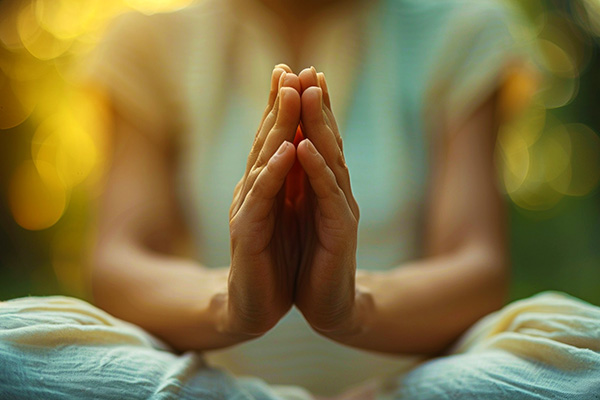 My world was turned upside down when my father was diagnosed with pancreatic cancer. For seven agonizing months in 2005, I became his caregiver, managing the extreme emotional and physical toll of his illness.
My world was turned upside down when my father was diagnosed with pancreatic cancer. For seven agonizing months in 2005, I became his caregiver, managing the extreme emotional and physical toll of his illness.
Even the hospice staff, experienced in end-of-life care, commented at the time that my father was not an easy patient to care for. Their observation confirmed my own feelings on the matter and highlighted the unique challenges of the difficult karmic relationship I had with my father.
Throughout this stressful time, I held out hope for a miracle. I felt compelled to seek guidance, but unfortunately Spirit revealed a timeline of six to twelve months. This devastated me at the time, but I’ve since come to accept that arrivals and departures are part of every soul’s journey. Spirit was simply confirming a poignant truth: at some point we are all called home to the spirit realm.
Despite his resistance to any form of treatment, my father allowed a trusted colleague of mine, a master in his healing modality, to visit our home weekly for body alignment sessions. These sessions became a turning point — not only for my father, but for me as well.
During their second session, my healer friend shared an observation that struck a deep chord. He sensed an immense amount of bitterness and resentment in my father, energies he had perceived without any prior knowledge of my father’s emotional state or life history. He then offered me a piece of wisdom that changed the way I viewed not only my father, but all of my relationships: “Try to see only the true spiritual essence that is your father.”
Reconnecting With Your Inner Light
 These days, it’s easy to feel lost, anxious, or just plain drained. We juggle the pressure to succeed, increasing isolation, endless app notifications, and even a creeping sense of loneliness or hopelessness.
These days, it’s easy to feel lost, anxious, or just plain drained. We juggle the pressure to succeed, increasing isolation, endless app notifications, and even a creeping sense of loneliness or hopelessness.
It’s no wonder so many of us feel overwhelmed and disconnected from our true selves and the deeper source of wisdom within that illuminates our lives. Instead of feeling alive and vibrant, for many people it’s just a matter of getting through the day.
But here’s the good news: There is a way out of this gray fog, and it doesn’t involve a fancy retreat or running away to join the circus.
It’s about reconnecting with the light within you-the spark of divinity that’s always been there. Once you tap into that, everything changes. You begin to feel grounded, peaceful and purposeful. Life becomes richer, more joyful, and you’ll find yourself smiling a lot more!
The spiritual concept of “light” is central to many Eastern wisdom traditions. In Hinduism, for example, “light” symbolizes divine knowledge, truth, and the divine self (atman). The famous Sanskrit phrase “tamaso mā jyotir gamaya” (lead me from darkness to light) from the Brihadaranyaka Upanishad refers to our innate desire for enlightenment and spiritual knowledge.
The concept of enlightenment (bodhi), metaphorically symbolized by light, is also central to Buddhism. In achieving enlightenment, one is said to attain wisdom and freedom from the darkness of ignorance.
The True Meaning Of Being Balanced
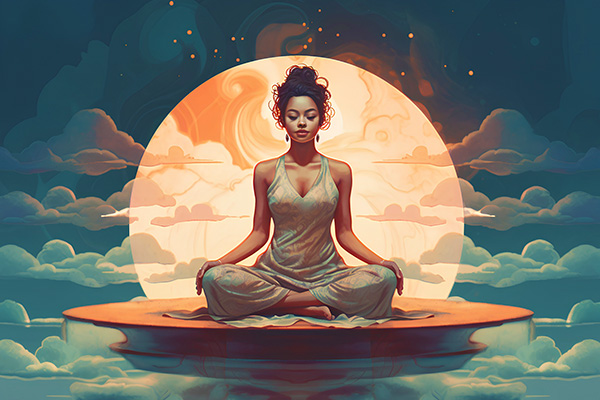 Spiritual teachers often emphasize the importance of achieving and maintaining balance as a fundamental aspect of well-being, personal growth, and spiritual development.
Spiritual teachers often emphasize the importance of achieving and maintaining balance as a fundamental aspect of well-being, personal growth, and spiritual development.
But what does it really mean? Is it about having a healthy work-life balance? Is it about a balanced diet or exercise routine? No, these are just some of the smaller elements of achieving true balance.
Balance refers to being holistically balanced in all aspects of our existence: body, mind, and spirit. Achieving and maintaining balance means creating a harmonious and integrated life in which all aspects of our being support each other, leading to overall well-being and a deeper connection with our true self.
We are more than our physical health, appearance and fitness levels. We are more than our thoughts, ideas, and knowledge. And we are more than our spiritual beliefs and practices. We are a wondrous compilation of all these things that make up our body, mind, and spirit. When any part of us is unhealthy or dysfunctional, it disrupts our alignment with our higher self. This is the true meaning of being out of balance.
Striving to be true to your higher self should always be your priority. Your higher self is the real you, the you that exists in harmony with the universe and is an expression of the divine. It is only when we are in alignment with our higher self that the world truly opens up for so much more to flow into our lives…instead of out of them.
Understanding The Higher Self
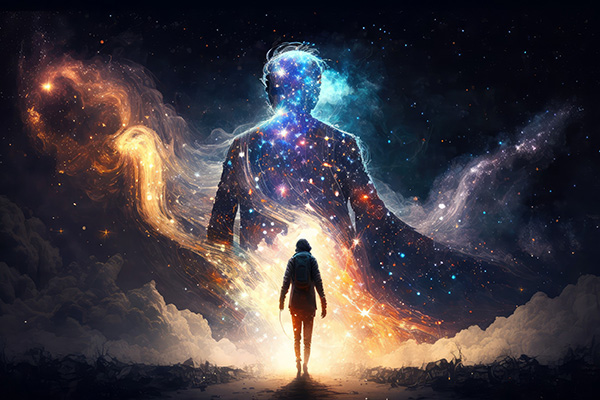 In modern spirituality and metaphysics, the concept of the “higher self” is generally considered a cornerstone of spiritual awareness and conscious living.
In modern spirituality and metaphysics, the concept of the “higher self” is generally considered a cornerstone of spiritual awareness and conscious living.
The idea that we have a “higher self” is found in many spiritual and mystical traditions, although it may be called by different names and understood in different ways.
Despite these differences, the underlying idea is that there is a higher, more enlightened aspect of our being that we can connect with and embody.
Often mentioned in discussions of intuition, mindfulness, enlightenment, and the search for deeper meaning, the higher self is seen as a guiding force or eternal soure of wisdom that transcends our everyday consciousness.
Yet despite the common use of this term in modern spiritual communities and teachings, there remains a great deal of confusion and variation in how the higher self is understood and interpreted. There are many different opinions and beliefs. Some see it as our inner connection to the divine or universal consciousness. Others see it as the true spiritual essence, free from the limitations of the human ego. And some simply see it as an alternative term for our eternal spirit or soul identity.
In my experience, most of the confusion and misunderstanding arises because the higher self is mistakenly seen as a distinct and separate entity from the soul or spirit. From this perspective, the higher self is seen as entirely separate from our soul, representing our connection to something greater than ourselves, to the divine or universal consciousness.

